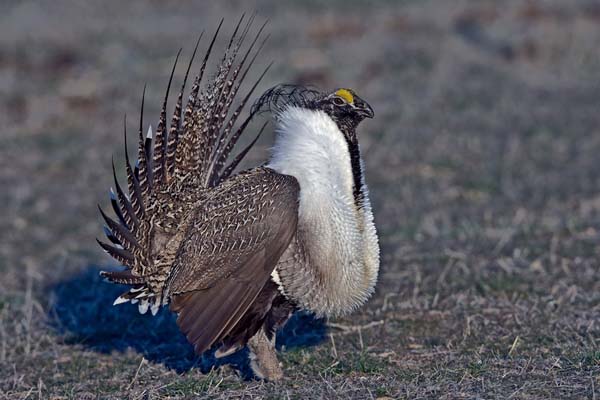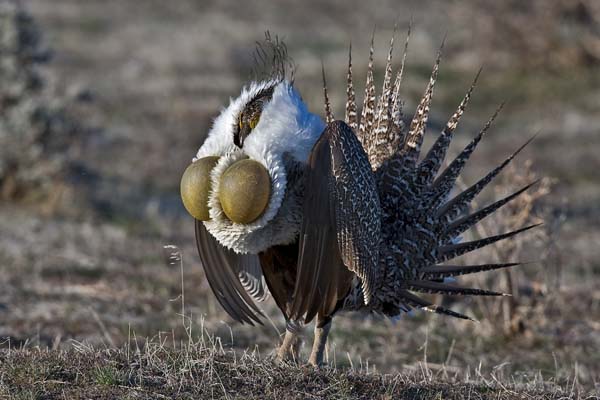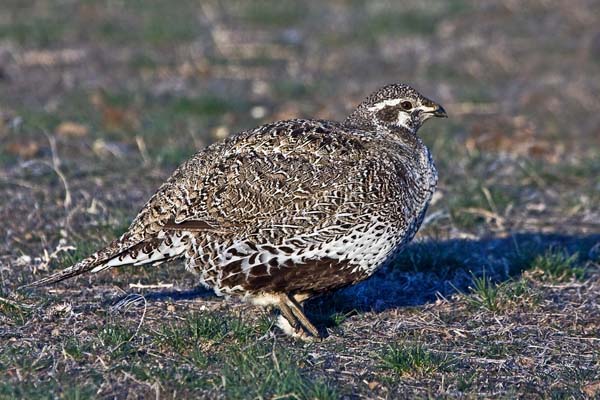Wildlife North America . com North American Animals - mamals, birds, reptiles, insects |
Greater Sage-Grouse (Centrocercus urophasianus)
Greater Sage Grouse (Male), Near Ten Sleep, Wyoming Photograph by Alan And Elaine Wilson. Some rights reserved. (view image details) 
Greater Sage Grouse (Male), Near Ten Sleep, Wyoming Photograph by Alan And Elaine Wilson. Some rights reserved. (view image details) 
Greater Sage Grouse (Female), Near Ten Sleep, Wyoming Photograph by Alan And Elaine Wilson. Some rights reserved. (view image details)
GREATER SAGE-GROUSE FACTS
DescriptionThe Sage grouse is a chicken like bird, and is the largest grouse in North American. Males have a dark grey head, black throat and yellow lores. The upper parts of the chest is brown and it has a large white ruff that it can inflate during courtship using inflatable sacs. The wings and bark are brown with some white barring. The tail is long and tapered with barring. Females are mottled gray and brown with less white than males. Females do not have inflatable sacs and have gray and white throat. Females have shorter tails than males. Size length 56cm - 75cm. Weight: 1.4kg - 2.9kg. Environment plains, mountain slopes and foothills. Found where sagebrush is present. Food Leaves, buds, stems, flowers, fruit, insects. Breeding The Sage grouse puts on a courting display at a "lek" (display area). After attracting a female, mating takes place on the lek. The female builds a nest a few metres from the lek and lays about 7 or 8 eggs over a 9 day period. Eggs hatch after incubation of about 37 days. The young can fly short distances after about a week. Young remain with their mother until fall. Range found from northern Washington and southern Saskatchewan to south western Colorado, south parts of Utah, eastern California and Nevada. Western limit is northern California and eastern limit is the Dakotas. Conservation Status The conservation status in the 2004 IUCN Red List of Threatened Animals is "near threatened". Classification
Home | Mammals | Reptiles | Birds | Insects | Privacy Policy | Disclaimer | Contact Us |